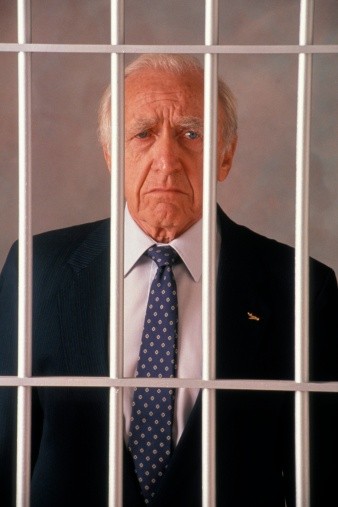A. Sure . . . if you’re an older senior citizen and can no longer take care of yourself, the government says there’s no Nursing Home care available for you. So, what do you do? You opt for Part G. Part G gives anyone 65 years or older a gun (that’s Part G) and four bullets. You are allowed to shoot four politicians. This means, of course, that you’ll be sent to prison where you’ll receive three meals a day, a roof over your head, central heating & air conditioning, cable TV, library, and all the care you need. Need new teeth? No problem. Need glasses? That’s great. Need a hearing aid, new hip, knees, kidney, lungs, sex change, or heart? They’re all covered.
As an added bonus, your kids can come and visit you at least as often as they do now!
And, who will be paying for all of this? The same government that just told you they can’t afford for you to go into a nursing home. And . . . you can get rid of 4 useless politicians while you’re at it. And now, because you’re a prisoner, you don’t have to pay any more income taxes.
Is this a great country or what?
As a member of the bar in Virginia, Maryland, and DC, and a law-abiding citizen, I of course do not condone murder or committing illegal acts to get incarcerated, and the above is a joke. But there is some truth to this joke when it comes to prisoners receiving free long-term care.
Older prisoners are the fastest growing segment of the U.S. prison population. According to a recent American Civil Liberties Union report, of the 2.3 million adults in state and federal prisons, there are approximately 250,000 seniors behind bars in this country. In 2014, it was estimated that the U.S. spends more than $16 billion annually caring for these aging inmates, and their numbers are projected to grow dramatically in the next 15 years.
And, what is considered to be “elderly” in prison isn’t what most people think of as “old.” The National Institute of Corrections considers prisoners over 50 to be “elderly” or “aging” because those who wind up behind bars have more frequently engaged in unhealthy behaviors — like using narcotics or drinking — than the general population. And they’ve also been less likely to receive regular medical care. Once they’re locked up, the stress of prison life tends to prematurely age people, corrections experts say.
- Private Nursing Home Care: In the last five years, a handful of states have tried to contract with private nursing homes to care for some of their elderly and disabled inmates under so-called “medical parole” programs that allow prisoners to receive care outside of a prison while remaining in state custody. But few private facilities have been willing to accept the prisoners.
- Special Facilities in Certain States for Senior Inmates: Some states have resorted to building new nursing facilities within or outside prison walls. In California, a 1,700-bed prison is being constructed to house medically infirm prisoners. New York opened a special prison unit for the cognitively impaired at its Fishkill facility. Most of the prisoners in the unit suffer from dementia. Washington state has an assisted living unit at one of its prisons. Connecticut, Michigan, Kentucky and Wisconsin are trying a different approach. Instead of attempting to place prisoners in nursing home beds next to someone’s elderly parent, the states are asking the commercial nursing home industry to provide a facility that would accept prison inmates and patients from the state mental hospital who required long-term nursing care.
- Exercise for Senior Prisoners: In Nevada, the “True Grit” program has helped reduce infirmary visits for about 200 prisoners by offering music and art therapy and physical exercise, including wheelchair basketball.
- Early Release for Seniors: Other states, such as Louisiana, have passed laws making it easier for some elderly prisoners to be released after a parole hearing at which their risk for committing future crimes is assessed. Releasing some older prisoners early could shift the cost of their care from states to their family members, and make them eligible for federal programs like Medicaid, experts say. However, courts and communities have tended to resist so-called “compassionate release,” which cuts short the sentences of elderly or dying inmates so they can spend their last days on the outside.
Print This Page













